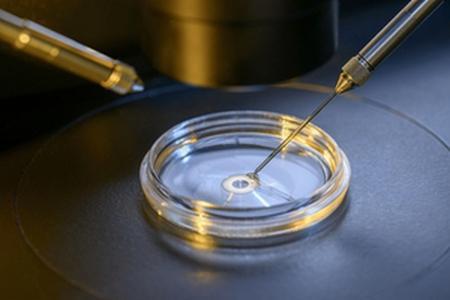
Egg Donor Agreements - When You Need Them and Why
 The “traditional” American family is changing, and assisted reproduction techniques are consistently advancing. Egg donation is the process by which a woman donates her eggs to a recipient through the Vitro fertilization process. The eggs are then fertilized with sperm and implanted into the recipient.
The “traditional” American family is changing, and assisted reproduction techniques are consistently advancing. Egg donation is the process by which a woman donates her eggs to a recipient through the Vitro fertilization process. The eggs are then fertilized with sperm and implanted into the recipient.
Currently, no statutory law exists in Illinois that governs egg donation. However, egg donors and recipients commonly hire attorneys to represent each of them in drafting an Egg Donor Contract or Egg Donor Agreement. Some doctors actually require a written agreement before beginning the egg donation process. Egg donors may choose to remain anonymous if they so desire.
Since there is no egg donor legislation in Illinois, the Egg Donor Agreement governs the rights of each party involved in the egg donation process. There are important provisions that should be implemented into the Egg Donor Agreement. The following questions should be addressed by the parties prior to egg donor services being initiated:
- How many times has the donor agreed to donate?
- What will happen to the frozen eggs? Will they continue to be frozen or will they be disposed of?
- What happens to the frozen embryos? Will they stay frozen for further use or will they be disposed of?
- Who do the frozen eggs/embryos belong to? The donor or the recipient?
- If the frozen eggs/embryos belong exclusively to the recipient, can she use them at any other time she desires in the future?
- Which party will be responsible for the costs of storage, freezing, and cryopreservation of the eggs/embryos?
- Are the recipients going to cover 100% of the donor’s medical costs, including testing, procedure, medication, medical pre-screening, and fertility testing?
- Are the recipients going to be 100% responsible for the donor’s attorney’s fees and costs?
- If the recipient knows the identity of the egg donor, do they wish to not reveal the egg donor’s identity to anyone? Can the recipient disclose the donor’s identity with express written consent?
- Will the recipient disclose to the child(ren) that the donor is the biological parent of the child(ren)? If so, at what age is it appropriate to do so?
- Can the donor have any future contact with a child conceived through egg donation?
- If there is a disagreement between the donor and recipient, will they engage in mediation? Binding mediation? Arbitration?
Beyond these questions, there are also other important considerations that should be specified in any Egg Donor Contract. Some things that you may not have thought about but are crucial from a legal perspective, include:
- Specifying that the donor is only providing eggs for the purpose of fertilization and implantation and will not request or compel any guardianship, allocation of parental responsibility, custody, or parenting time rights with any child that may result from the egg donation procedure.
- Specifying that the recipients will not go after the donor for financial support for any child that results from the egg donation.
- Specifying that the donor shall not be named as the child’s mother on the birth certificate;
- Specifying that the donor has relinquished all rights to bring a suit to establish paternity of any of the child conceived through egg donation.
- Indicating that the donor’s relinquishment of rights is final and irrevocable.
- Indicating that there may be issues that arise from the Egg Donor Agreement that have not been settled by statute or prior court decision. As such, the parties choose to enter into the Egg Donor Agreement as binding.
- Indicating that each party has signed the Egg Donor Agreement freely and voluntarily and without duress of any kind.
- Indicating that any oral modification to the Egg Donor Agreement is invalid.
In the unfortunate event that you end up with a problem with the egg donor process, these will become invaluable parts of your contract. That is why it is imperative you have an attorney draft and/or review any Egg Donor Agreement that you may enter into. Please contact our office to set up a free consultation if you have questions regarding egg donation

 630-407-1200
630-407-1200






